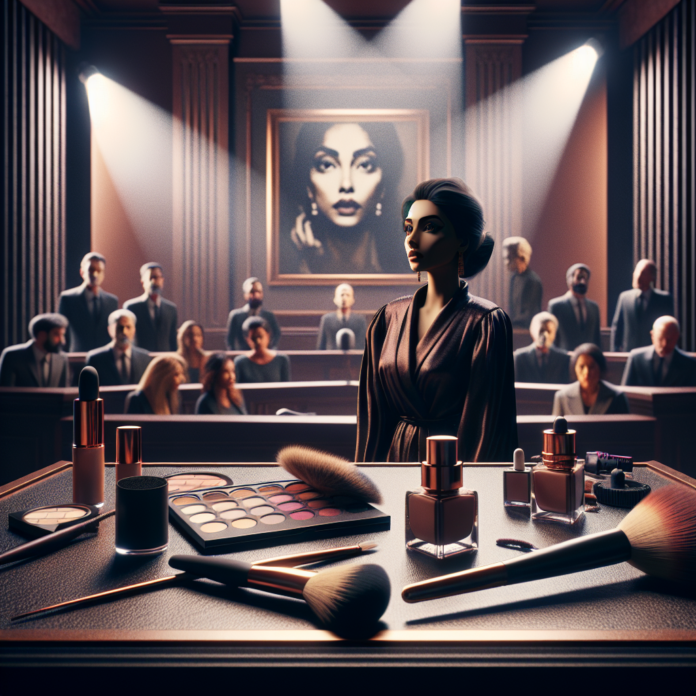In an unexpected turn of events, the world of music is gripped by controversy as Garth Brooks, one of America’s most celebrated solo artists, finds himself embroiled in a scandalous legal battle. The country music legend, known for his steadfast public persona and devotion to wife Trisha Yearwood, has been accused of heinous acts by a former makeup artist, identified as Jane Roe, who claims she was violently assaulted by Brooks in a Los Angeles hotel room. The allegations come amidst a backdrop of previous confessions of infidelity and an ongoing struggle to maintain his reputation. As Brooks fiercely denies the charges, likening them to a failed extortion attempt, the case raises broader questions about celebrity, power, and accountability. With a high-profile lawyer representing the accuser, parallels are drawn to similar cases in the entertainment industry, hinting at potential repercussions for Brooks’ illustrious career. As the legal proceedings unfold, the public watches closely, eager to understand the truth behind the accusations and their implications for the music icon.
Allegations and Denial
Garth Brooks is no stranger to the spotlight, but the recent allegations against him have cast a shadow over his illustrious career. Known for his dynamic performances and heartfelt lyrics, Brooks now faces accusations that could tarnish his reputation and impact his future in the music industry.
The allegations, levied by a former makeup artist under the pseudonym Jane Roe, are both graphic and disturbing. According to the civil lawsuit, Roe claims that Brooks violently raped her in a Los Angeles hotel room in 2019, during which he allegedly made lewd comments about his sexual prowess. The lawsuit further contends that Brooks forced her to grope him and even suggested a sexual encounter involving his wife, Trisha Yearwood.
These allegations come as a shock to fans and followers, especially given Brooks’ public image as a devoted husband to Yearwood. While the couple has often shared their affection for one another, this scandal threatens to unravel the narrative they have carefully crafted over the years.
Brooks’ Response
Brooks, however, has categorically denied the accusations, describing the lawsuit as a “failed extortion plot.” He has stated that he was pressured to pay a substantial sum of hush money, which he refused, asserting that any payment would imply guilt for actions he claims he did not commit. To preempt the lawsuit, Brooks revealed that he had filed his own complaint, but it was unable to prevent the lawsuit from moving forward.
Legal Implications
These legal proceedings bring to light not only Brooks’ personal conduct but also the power dynamics and legal complexities often involved in such high-profile cases. The involvement of a prominent attorney, who notably represented Cassie Ventura in a similar case against Sean “Diddy” Combs, adds further intrigue and credence to Roe’s claims. The comparison to Diddy’s case, which resulted in his arrest, suggests a potential shift in how such allegations are addressed within the music industry.
As the lawsuit progresses, evidence, including text messages, videos, and audio recordings, could play a crucial role in determining the outcome. These pieces of evidence are often pivotal in sexual assault cases, where it becomes one person’s word against another. Brooks’ accuser will likely rely heavily on such evidence to substantiate her claims, while Brooks’ legal team will seek to discredit her and protect his reputation.
Impact on Career and Industry
The impact of these allegations extends beyond Brooks’ personal life, threatening his professional legacy as well. As America’s bestselling solo artist of all time, with an estimated net worth of $400 million, Brooks has much at stake. His Las Vegas residency and other business ventures could suffer if the case sways public opinion against him.
Moreover, these accusations occur in a broader cultural context, where movements like MeToo have highlighted the prevalence of sexual misconduct and the importance of holding powerful individuals accountable. Whether this will lead to a similar reckoning in the music industry remains to be seen, but the implications are significant for Brooks and his peers.
Conclusion
As the public watches the case unfold, it serves as a reminder of the complex and often volatile intersection between celebrity and accountability. The court of public opinion can be just as influential as the legal system, as both sides of the case seek to sway observers to their narrative.
The road ahead for Brooks is undoubtedly challenging. Should the allegations prove to be unfounded, he will have to work tirelessly to restore his image. Alternatively, if Roe’s claims are validated, it could spell the end of Brooks’ career as he knows it.
In the meantime, Brooks continues to perform and engage with his fans, maintaining a semblance of normalcy amidst the chaos. Yet, the specter of the lawsuit looms large, reminding us that even the most adorned stars can face dark and potentially destructive personal battles.
Ultimately, this case is more than just a scandal; it’s a potential turning point in how the music industry confronts allegations of sexual misconduct, and it challenges us to consider the balance of power, truth, and justice in the world of entertainment. As the legal proceedings continue, only time will tell how this story will conclude and what the lasting impacts will be on Garth Brooks and the music industry as a whole.
Summary: Garth Brooks faces allegations of sexual misconduct by a former makeup artist, threatening his career and reputation. He denies the claims, calling them extortion.




